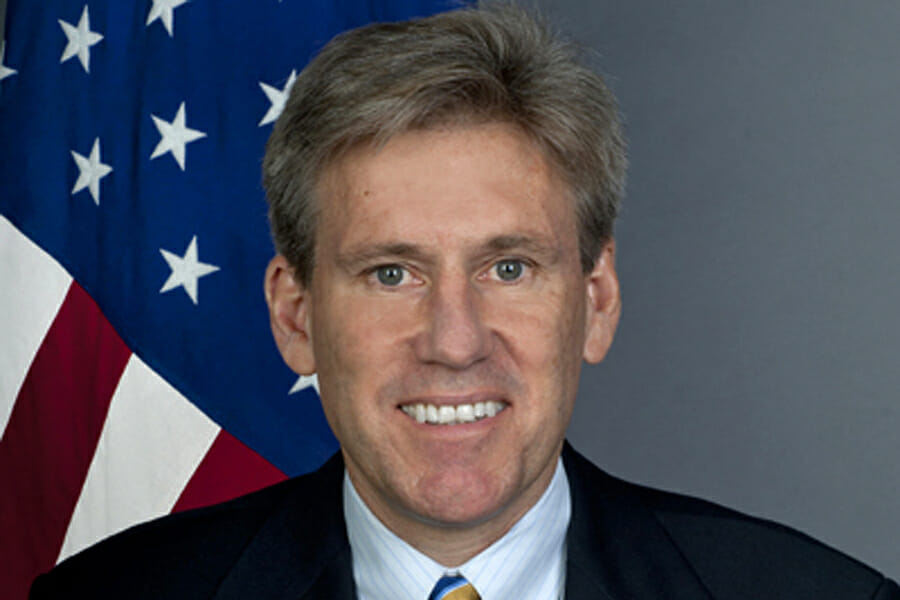
Death in Benghazi: The Dark Side of the Citizens’ Revolt in Libya
The American delegation in Benghazi has been left reeling by the deaths of four of its staff, amongst them Ambassador J. Christopher Stevens. The deaths occurred in an effort to evacuate the consulate, which came under attack from a heavily armed mob.
History is tinged with irony. It was only last year that President Barack Obama, along with then French President Nicolas Sarkozy, saw Benghazi as a place of promise against a vengeful Gaddafi regime. Having been seduced by the humanistic garble of philosopher Bernard-Henri Lévy, a military intervention began to save the rebels from imminent slaughter. The rebels, in time, came to form what is now a rickety, patchwork democracy. The language itself suggests the problem US missions tend to have – their purpose is always promoted as messianic. The US presence in Libya is there, not for self-interest, but for Libya. That has not proven to be the easiest sell for Washington.
Liberation narratives are always awkward and rarely accurate. Those who assist in toppling dictators tend to leave the ground fresh for another insurrection. The flipside of the Arab Spring is fundamentalist usurpation. Chatter about democracy is meaningless when the institutional will is absent.
The new Libyan regime has been supported by Western governments, but it lives precariously. All that mob violence generally requires is a vague pretext to bolster a lynching.
What that pretext was in the Benghazi killings is not entirely clear. Was it the noxious video “Innocence of Muslims,” made by a real-estate developer and promoted by Koran-burning preacher Terry Jones? Or was mob violence a gift on the anniversary of the September 11, 2001 attacks, orchestrated with devastating effect?
US officials have taken it upon themselves to investigate what motivated the attacks. It will not require the gifted and the intelligent to discern some of the causes. “Innocence of Muslims” is merely a sideshow to both the way American power is projected and the Muslim world’s own problems, though it provides a pungent distraction for troubled communities. It also shows that mobilised groups of revolt can be formed rapidly, bypassing official channels and imperiling stability.
Islamophobia in the US, trumpeted by Jones and backed by such figures as the Egyptian-American lawyer Morris Sadek, provides one side of the equation. The counter is provided by such organised efforts as seen in Benghazi. Both sides nourish each other’s assertions of intolerance. The power of these unofficial protests has reached such a level that General Martin Dempsey, chairman of the US Joints Chief of Staff, personally called Jones to demand that he stop promoting the film.
The violent reactions here have the hallmarks of organised protest against the Danish cartoons of the Prophet Mohammed that were published in Jyllands-Posten on September 30, 2005. What is notable there was that, while the cartoons did initially cause a flutter amongst the Danish Muslim community, it would take months before its embassies would be attacked. Notables among the Danish Muslim community were keen to globalise a local issue and publicise perceived abuses against Muslims in Denmark. And there is nothing more relieving to troubled regimes saddled with problems to marshal angst against a foe.
Questions will also be asked about the film’s distribution via a medium that continues to be used with enormous effect. Citizen journalists have embraced YouTube with avid enthusiasm. Abuses, atrocities, and incidents are being captured and streamed with near uncensored relish. But countries and authorities have also exerted their prerogative to target them. Ken Doctor, a veteran analyst of the newspaper industry, suggests that it would be a mistake to see such technology as “neutral.” YouTube “can be cynically used. There are forces of darkness in the world that will rapidly use them, as well as forces for good.”
YouTube itself has decided to temporarily restrict access to the film in Egypt and Libya. The question now being put to the distributors is whether they should remove it altogether. This is a fine line and one that vanishes when the not-so-thick skinned believe that burning down a consulate on the basis of a religious insult is worthwhile. Ironically, these protesters would be aghast if YouTube was to ban revealing material against their enemies. Censorship of such platforms as YouTube would itself be contrary to the spirit of openness and embrace the very limitations that tyrants would wish them to have. The reasons for Stevens’ death and those of his colleagues, lie elsewhere.
